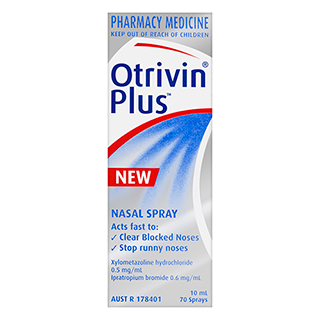What is Decongesting Nasal Spray?

A decongestant or nasal decongestant is simply a medicine that is mainly used to relieve nasal airway congestion. The most commonly used active ingredient in nasal decongestants is phenylephrine or pseudoephedrine. These ingredients are also effective against inflammation of the respiratory system, such as in asthma attacks.
There are two types of decongestants that can be used to treat symptoms associated with sinusitis and allergies. The first type, a nasal decongestant nasal spray, contains pseudoephedra or phenylethylamine, which are highly effective antifungal agents. When inhaled, they cause mucus to escape from the nose and throat and also cause coughing. Some decongestant nasal sprays also contain menthol and citronella, which can help relieve numbness in the nostrils and throat. In addition to the spray, decongestant nasal drops are also available over the counter.
A decongestant nasal spray is usually recommended for those who suffer from symptoms such as fever, headache, nasal discharge, nasal congestion, and even bad breath. This type of medication is generally considered more effective than decongestant nasal drops in treating sinus infections and should only be used for these reasons. The pain relieving nasal spray is also effective against allergic rhinitis.
A second type of decongestant nasal spray, decongestant nasal drops, can be used in a variety of situations. For example, many people with chronic sinusitis may experience excessive mucus production as a result of infection, and therefore, a nasal decongestant spray can be a useful medication. Many decongestant nasal drops also contain antihistamines, which are commonly used to treat allergy attacks and can be used as a decongestant nasal spray if symptoms are caused by an allergy.
If you plan on using a decongestant nasal spray as a way to relieve some of your symptoms, it is best to see your doctor for advice. If you are unsure about the effectiveness of your treatment, your doctor may recommend a different type of medication. However, a decongestant nasal spray should not be used if you are pregnant, have respiratory problems, are taking certain medications, or are allergic to any of the ingredients in the decongestant medicine.
If you regularly use a decongestant nasal spray to relieve symptoms, you may find your symptoms return after a while. This usually indicates the need for dosage adjustments. It is important to follow all package instructions on how often to spray. If you are currently taking any medications, it is best to contact your pharmacist and ask what they recommend.
Some decongestant nasal sprays can be helpful if used at bedtime or at bedtime. They work by keeping the moisture in the nose during sleep, which helps block allergens. However, if you are sensitive to them, it is best not to use them this way. In addition, some decongestant nasal sprays contain additives that can dry out the nose, causing dryness and itching.
If you decide to use a decongestant nasal spray, you should always check with your pharmacist before using them. or any other medication for that matter, and consult your doctor first.
Many decongestant nasal sprays are available over the counter, but you have to be careful. Some over-the-counter decongestants contain ingredients that can dry out sinuses and cause more problems than they fix.
If you can’t find a nasal decongestant spray that suits your needs, you might want to consider looking for a more specialized product. For example, if you are allergic to dust mites or nasal sprays that contain them, you can try using something that contains a substance known as nystatin.
Nystatin is an ingredient that makes the Swelling Nasal Spray a useful way to relieve some of your symptoms. It works by suppressing the production of histamine, a substance that causes nasal inflammation, and blocking its absorption. While this may sound like an over the counter, it has been shown to be very effective in reducing inflammation caused by allergies.